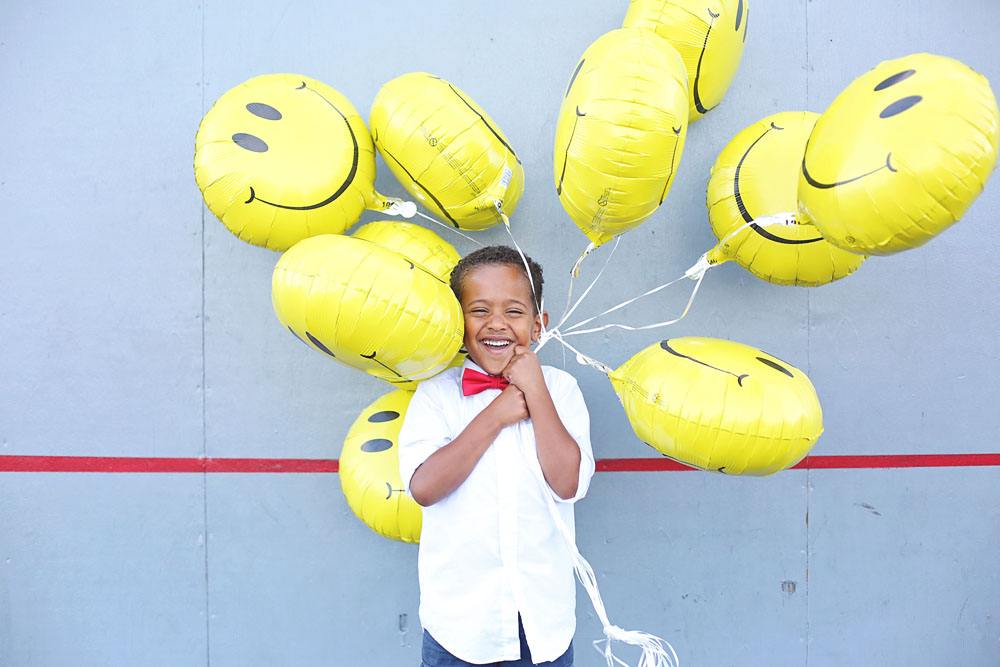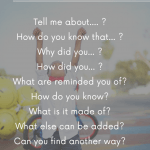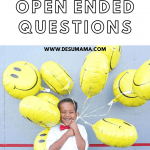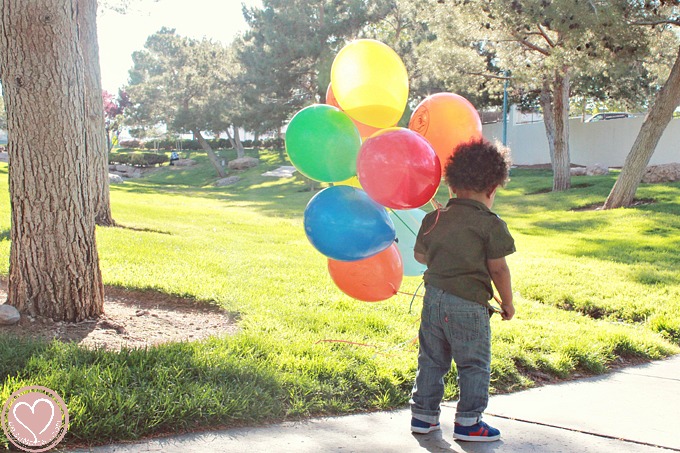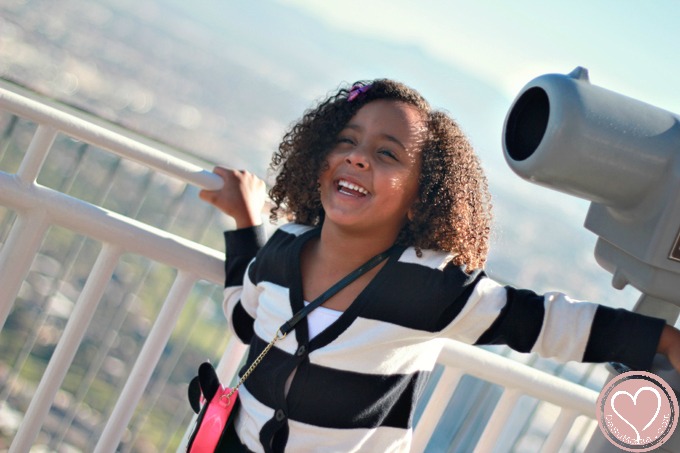Preschool is such a fun age when raising kids! Their development is expanding and it’s never a dull moment when they get talking. But when my sweet son started to show signs of anxiety at preschool, his teacher recommended we reframe our requests with open-ended questions for kids to emphasize the value of creativity versus a correct answer. I was amazed at how a small change can make such an impact! And that’s how my obsession with open-ended questions for preschool began.
Open Ended Questions for Preschool
What is an open-ended question? So glad you asked! Questions with more than one correct answer or questions which can be answered in various ways are called open‐ended or divergent questions. They are subjective and leave a bunch of space for creativity and individuality. This way of asking questions stimulates language and acknowledges the many solutions a problem can have. Open-ended questions encourage creativity, open-mindedness, and a growth mindset.
When I saw my preschooler struggling with fear, I dove into research on growth mindset. As a mom, I want to support his love of learning at home! I wrote Growth Mindset for Kids to show how parents can inspire a motivated mindset, as well as a huge list of our favorite growth mindset videos, books, and resources.
We’re now learning all about open ended questions – what they are, the kinds that inspire creative thought and how parents can support their preschoolers at home.
Preschool Questions to Ask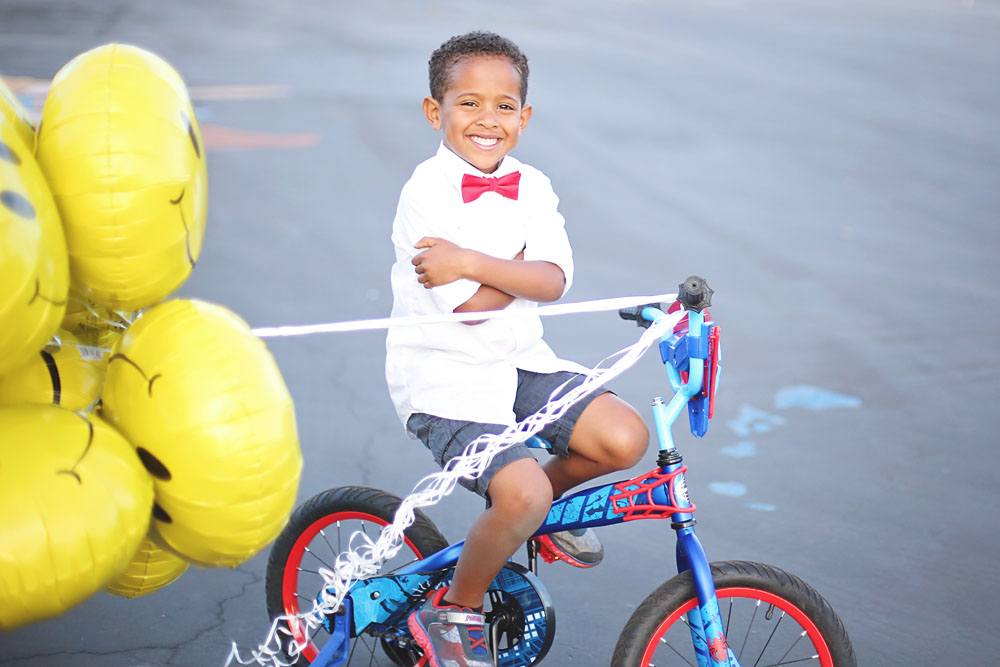
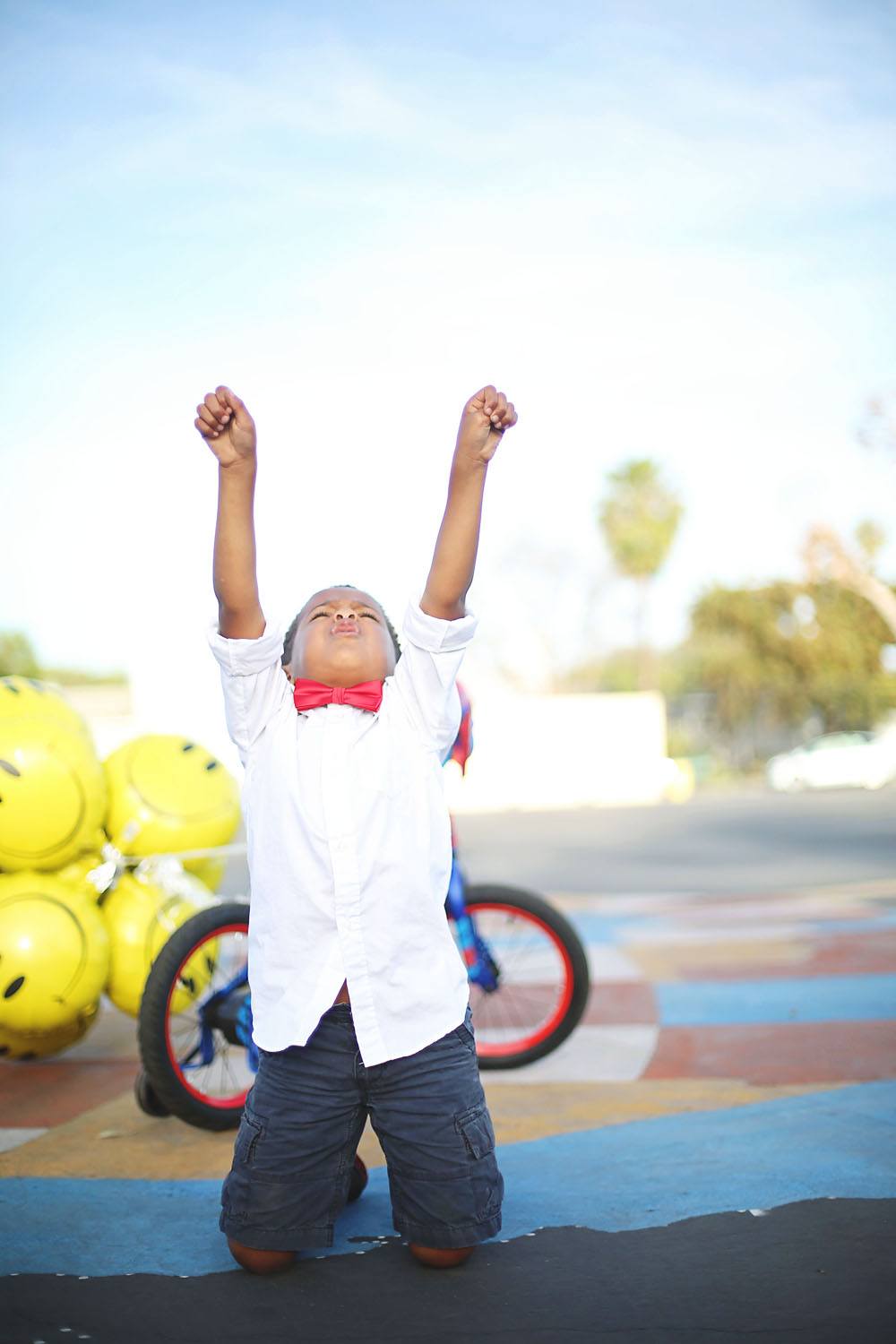
Open-Ended Questions
With closed-end questions, you know what the answer will be, but open-ended questions leave you in suspense! These types of questions also challenge your child to use their verbal skills to answer your inquiry. If your little one is having a hard time coming up with responses, you can ask a more specific question (“tell me about those circles you drew” is less generalized then “tell me about your drawing”) or model the vocabulary through self-talk or “parallel talk”. So, for instance, “I love drawing circles too. Circles are so fun! I wonder, why do you love drawing circles?”.
An example of open ended questions versus closed end questions can be as simple as tweaking a few words, such as:
- Open-ended question: Tell me about your puppy! Closed ended question: What’s your puppy’s name?
Types of Questions
Open ended questions are a type of question that promotes creativity, but they do so much more… specifically, great questions promote:
- Knowledge: explaining in detail what they know to be true
- Comprehension: formulating an opinion and verbalizing it
- Application: creating a plan on how to solve a problem
- Analysis: pondering on the “why” of things
- Evaluation: looking in the past to evaluate (then making plan for the future)
- Creating: the holy grail of expression! They feel confident and excited to explain future plans
Related: 100 Would Your Rather Questions for Kids
Questions to Ask Your Kids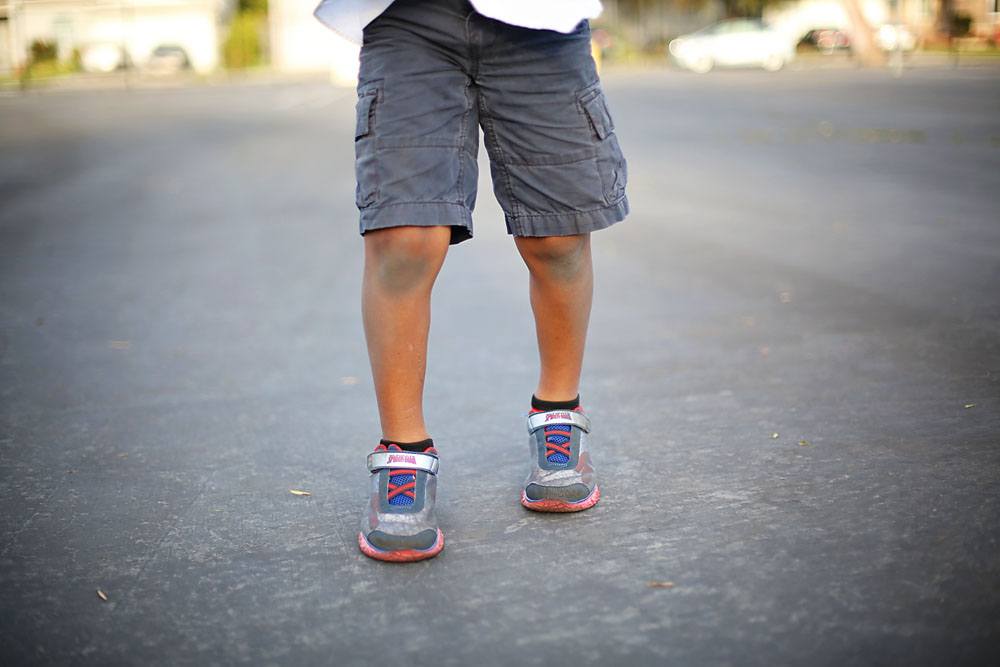
Open Ended Questions for Preschoolers
Here are the best open ended questions for kids, but especially our sweet preschoolers who are learning how beautifully made their voices are!
- Tell me about…?
- What do you think…?
- Show me how you…?
- I wonder why…?
- How do you know that…?
- Can you tell me more about why…?
- How did you…?
- Why did you…?
- What does it remind you of?
- How do you know?
- How did you do that?
- What did you do first?
- What could you do instead?
- What can you tell me about…
- What do you think would happen if…
- Can you think of another way…
- What is it made of?
- What else can this be used for?
- What do you think?
- What do you think will happen next?
- What could be added? What could be taken away?
Open Ended Questions for Kids
Related: 50 Family Questions to Inspire Trust
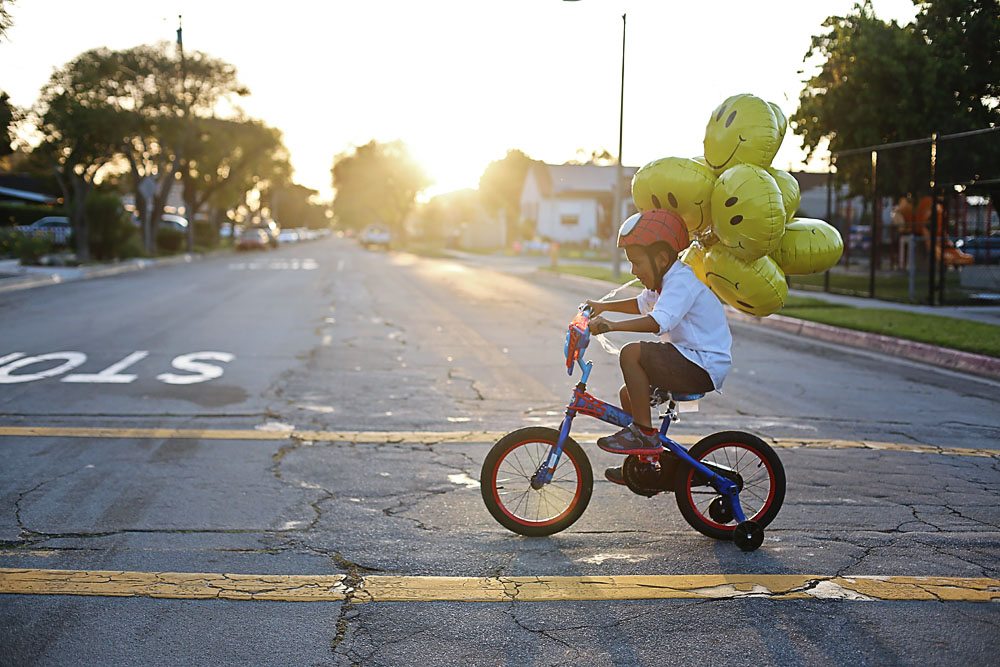 A Reminder on Listening
A Reminder on Listening
I’d like to end this list of open-ended questions with the reminder that listening to our children is even more important than the questions we ask them. Check out this fun list of listening activities for families and remember to:
- Wait a few seconds for your little one to think before asking a follow-up question
- Give your child plenty of time to completely answer the questions without interruption
- Show that you care about their answer
- Keep the conversation going with questions and genuine interest!

